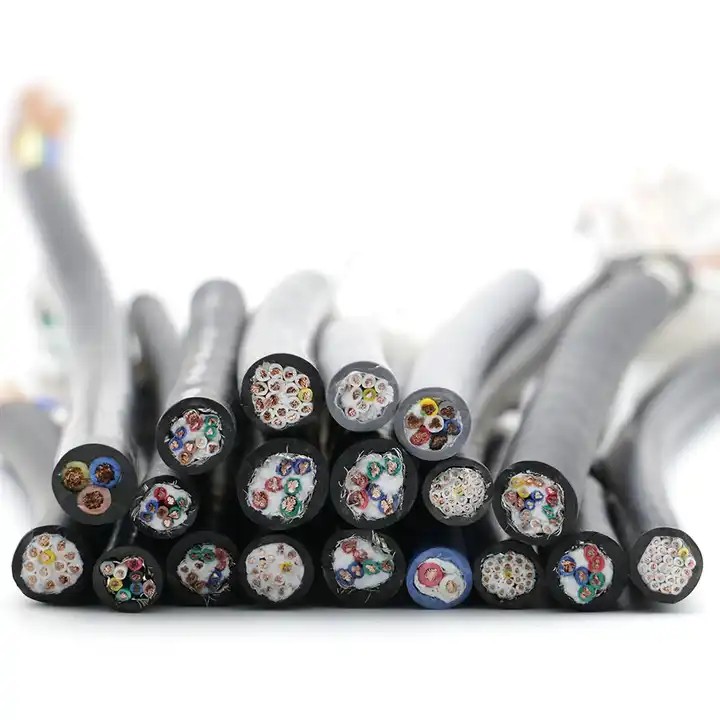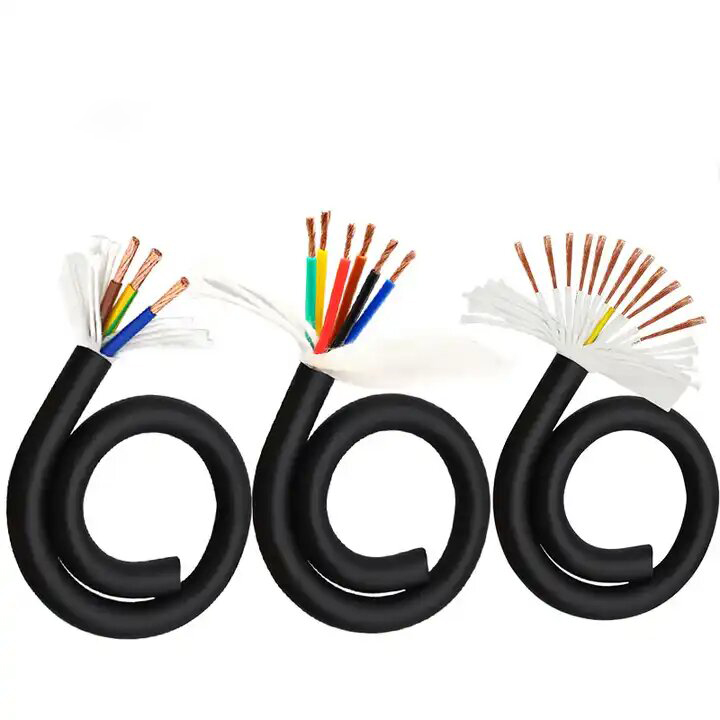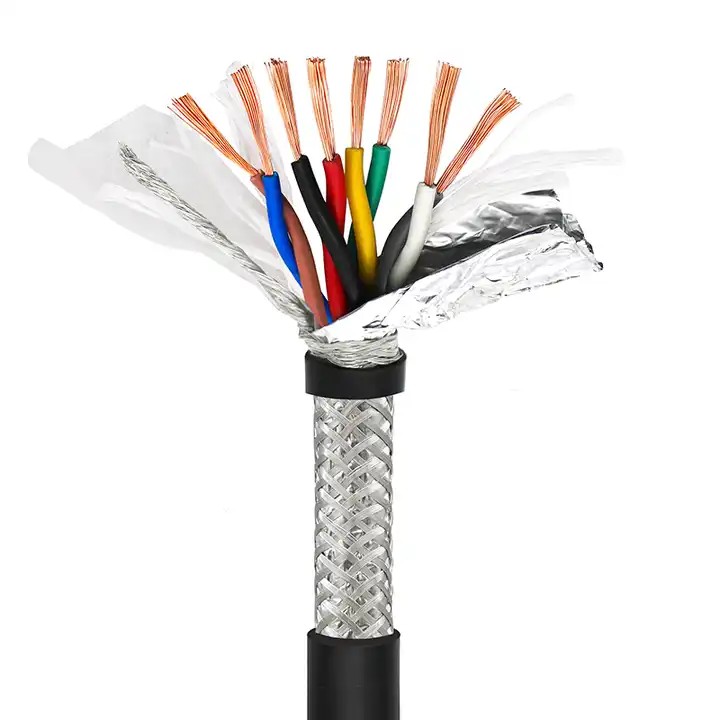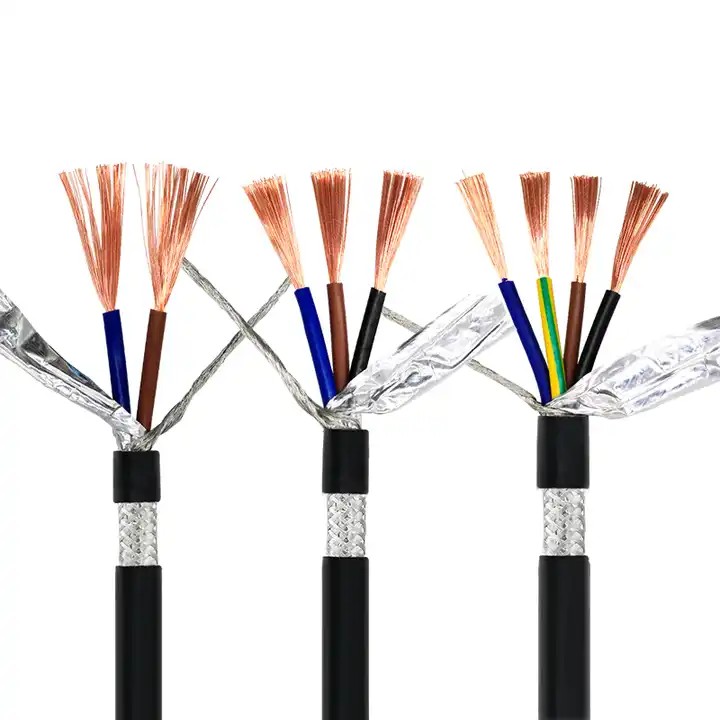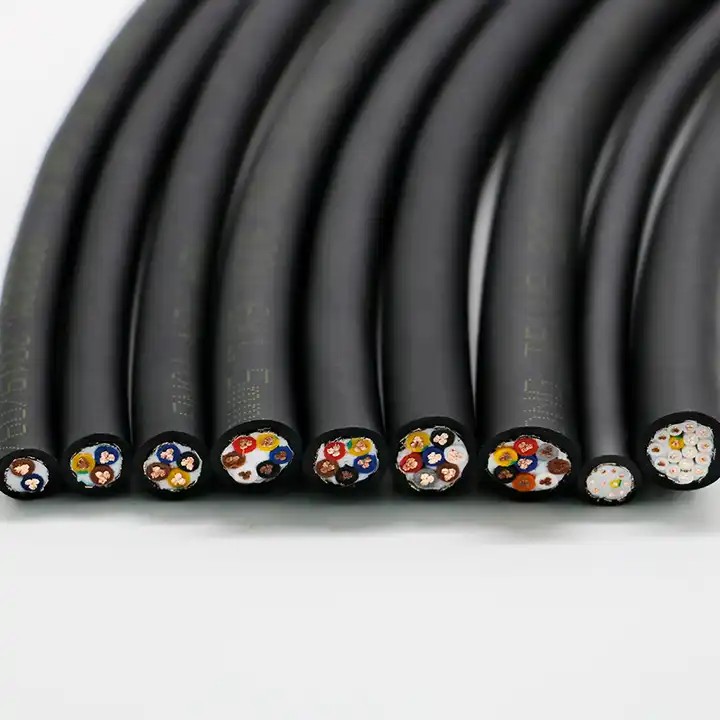How Does Flexible Shielded Cable Improve Signal Quality?
Published:
2025-01-07 17:18:33
Explore high-performance flexible shielded cable for reliable, noise-free signal transmission. Ideal for flexible shielded wire for machinery and industrial applications.
In today’s highly interconnected world, maintaining high-quality signal transmission is critical for ensuring the performance and reliability of electrical systems. Whether it's for communication, power distribution, or machinery control, poor signal quality can lead to data loss, equipment malfunctions, and even safety hazards. This is where flexible shielded cable plays a key role. Known for its superior performance and protection, flexible shielded cable is an essential component in reducing interference and ensuring clean, uninterrupted signals. In this article, we will explore how flexible shielded cable improves signal quality, its benefits in various applications, and why you should consider using it for machinery and other electrical systems.
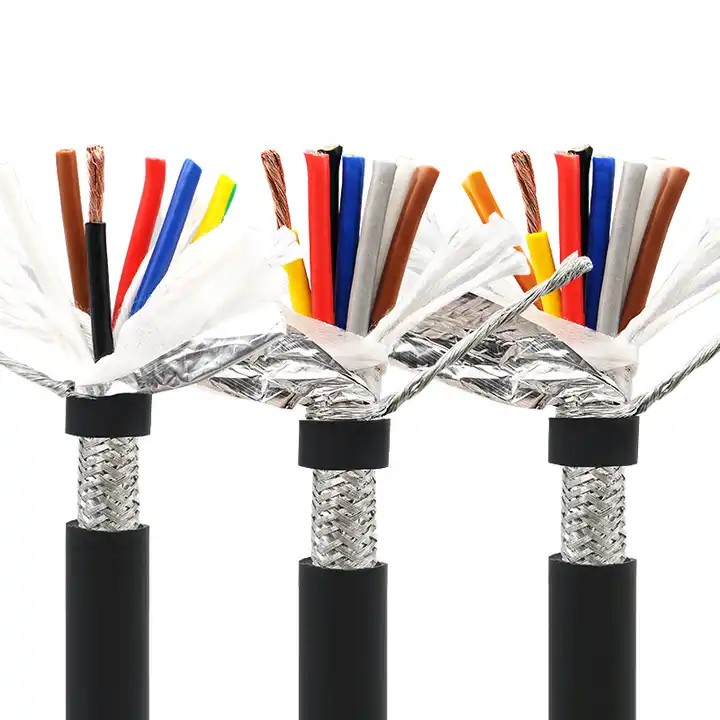
What is Flexible Shielded Cable?
Flexible shielded cable is a type of electrical cable that combines flexibility with built-in shielding to protect the internal conductors from external electromagnetic interference (EMI). The cable’s shielding—usually made of copper, aluminum, or a combination of both—acts as a barrier, preventing unwanted signals and noise from affecting the transmission of electrical signals.Unlike regular cables, which may lack adequate protection, flexible shielded cable ensures that signals are transmitted clearly and without distortion, even in environments with high levels of electrical noise or in systems where signals need to remain uninterrupted.
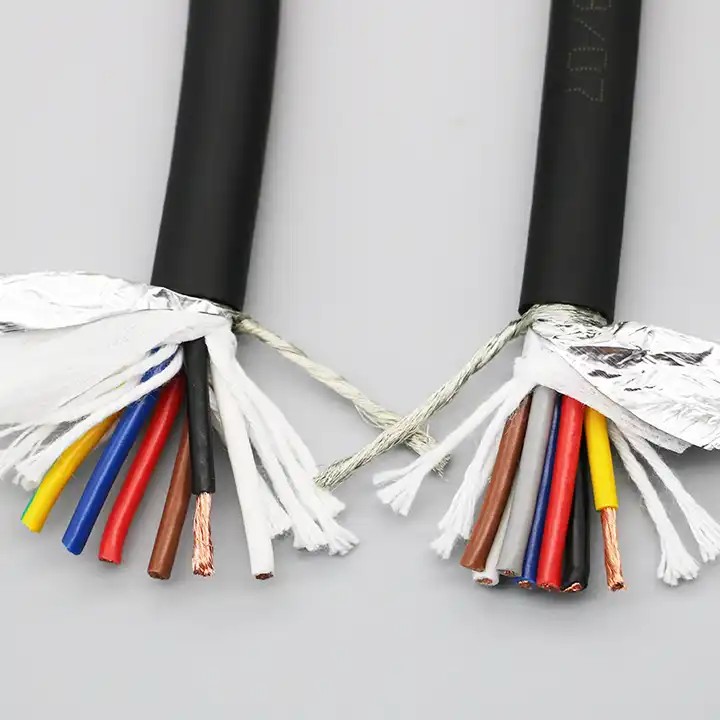
How Does Flexible Shielded Cable Improve Signal Quality?
Protection Against Electromagnetic Interference (EMI)
One of the primary reasons flexible shielded cable improves signal quality is its ability to block electromagnetic interference. EMI is a common problem in many electrical systems, especially in industrial environments with large machinery or electronic equipment generating unwanted electrical signals. These disturbances can corrupt or degrade the signals being transmitted, leading to communication failures, miscommunications, or system malfunctions.
By incorporating shielding into the design, flexible shielded cable prevents external EMI from interfering with the cable’s signal transmission. The shielding acts as a barrier that absorbs or deflects unwanted signals, ensuring that the signal inside the cable remains clear and strong.
Reduced Crosstalk in Multi-Conductor Cables
In systems where multiple cables or wires are bundled together, crosstalk can occur when signals from one wire interfere with those in another. This is a common issue in signal transmission for control systems, audio equipment, and telecommunications.
Flexible shielded cable helps minimize crosstalk by providing individual shielding for each conductor inside the cable. This shielding prevents the signals from bleeding into each other, maintaining the integrity of each channel’s signal. As a result, the signal quality remains sharp, with no interference from adjacent wires.
Improved Signal Integrity in Harsh Environments
Industrial machinery, control systems, and communication networks often operate in environments that are prone to electrical noise. Flexible shielded cable is designed to function reliably even in these harsh conditions. Whether it’s factory floors with heavy machinery, or outdoor environments with fluctuating temperatures, the shielding within the cable protects the internal signals, ensuring clean data transmission even in the most challenging environments.
For instance, flexible shielded wire for machinery is commonly used in automated control systems where precise signal transmission is essential for machine operations. By using shielded cable, businesses can avoid costly downtime due to signal disruptions caused by external electrical interference.
High-Frequency Signal Transmission
Another way flexible shielded cable improves signal quality is by allowing high-frequency signals to pass through without degradation. Many modern systems, especially those involving high-speed data transfer, require cables that can handle high-frequency signals without introducing noise or loss of integrity.
The shielding in flexible shielded cable not only protects against low-frequency EMI but also ensures that high-frequency signals are transmitted clearly. This makes it an excellent choice for applications such as telecommunications, networking, and broadcasting where high-frequency signals are essential.
Longer Cable Runs Without Signal Degradation
In many electrical systems, cables need to run long distances, which can lead to signal degradation over time. This is especially problematic in applications where the signal must travel from one device to another over significant distances. Without proper shielding, the signal can weaken or become distorted, leading to errors or failures.
Flexible shielded cable helps prevent this degradation by maintaining signal quality over longer cable runs. The shielding reduces the effects of external noise and ensures that the signal remains strong and clear, even over extended distances.
Why Choose a Flexible Shielded Cable Factory for Your Needs?
When selecting flexible shielded cable, it’s crucial to choose a reliable flexible shielded cable factory that can provide high-quality cables designed for your specific requirements. A reputable factory will offer cables that meet industry standards for durability, flexibility, and shielding performance.
At a trusted flexible shielded cable factory, you can find cables designed for various applications, including industrial machinery, automation systems, telecommunication, and more. These factories use advanced manufacturing processes to create cables that not only meet but exceed the required performance standards, ensuring long-term reliability and superior signal quality.
Applications of Flexible Shielded Cable
Industrial MachineryIn industrial settings, where machinery and equipment are often subjected to significant electrical noise, flexible shielded wire for machinery is essential. The shielding protects critical control signals, preventing malfunctions or downtime caused by interference. Whether in factory automation, robotics, or CNC systems, flexible shielded cable ensures smooth, uninterrupted operation.
Telecommunication SystemsFlexible shielded cable is also widely used in telecommunication systems, where clear signal transmission is essential for maintaining communication quality. The shielding ensures that external signals don’t interfere with phone, data, or video transmission, offering a reliable communication channel.
Automated Control SystemsAutomated systems, which rely on precise signals to control machinery or processes, benefit significantly from the use of flexible shielded cable. The shielding helps prevent signal interference, ensuring that the system operates as expected without signal degradation.
Flexible shielded cable plays a crucial role in improving signal quality by protecting against electromagnetic interference (EMI), reducing crosstalk, and maintaining signal integrity in harsh environments. Whether used in flexible shielded wire for machinery, telecommunication systems, or automated control systems, this type of cable ensures that electrical signals remain clear, accurate, and reliable. By choosing high-quality cables from a trusted flexible shielded cable factory, you can ensure optimal performance in your electrical installations and machinery.


